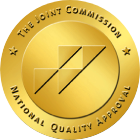
Society’s effect on Recovery
Although individuals will view addictive behavior in many ways, based on their own beliefs and situations, society needs a comprehensive view of it. Addiction is one of the compelling problems of modern life. Almost all individuals need to manage their desire better in a world increasingly filled with tempting activities and substances, and decreasingly filled with counterbalancing forces. Rather than just relying on individual self-control, perhaps our larger communities and society itself can help us respond better to our desires.
In the disease of addiction, denial is foundational and the polar opposite of acceptance. The ability to deny or minimize is essential to allow a person in active addiction to continue their self-destructive behavior, which appears highly irrational to outsiders. They cannot comprehend why the addicted person continues to use despite the many negative consequences. In order to sustain a successful recovery from addiction, denial has to be overcome.
A comprehensive view of addiction by society would recognize that anyone might develop it. We need to understand addiction as a developmental process or evolution, which could unfold in anyone, rather than as a disease that only happens to a few. Rather than scapegoating a few (so-called addicts and alcoholics) we need to take communal ownership of the problem of addiction, across the entire scope of the management of desire. Rather than focusing solely on prevention, treatment, and relapse prevention, these tasks would blend into the larger process of developing and maintaining communities with minimal addiction problems. If we adopt this perspective we might then also stop labeling as addiction other problems such as poverty, lack of family support, and lack of educational opportunity, and address them more directly and effectively.
When a person is diagnosed with cancer, they are treated with love, compassion and understanding. Cancer patients are rarely cut off by their families or judged for being sick. This is exactly how it should be. Unfortunately, this is not also the case with addiction, as it can cause anger and resentment amongst loved ones. Those struggling with addiction are often viewed as degenerates, “junkies,” bums or just completely selfish individuals, which can often lead them to be cast out by their family and spouses, thrown in jail and deprived of healthcare. Addiction simply does not receive sympathy like other diseases, which hurts not only the person with addictive behaviors, but also contributes to the growing epidemic.
Instead of locking away someone experiencing a drug or alcohol problem or treating them as outcasts, drug policy should be completely overhauled to treat addiction as a health problem. Directing funding toward addiction treatment will reduce crime, treat the underlying causes of addiction, and even treat co-occurring mental health problems. Addiction treatment programs will stop the revolving door effect of jails.
We must recognize that substance abuse and addiction is an illness, not a moral failing or easily abandoned self-indulgence. We must recognize that it is a complex illness with neurological, physical, emotional and spiritual components. We must recognize its impact on the most intractable domestic problems we confront. With such acceptance and recognition, we will appreciate the benefits of a revolution.
The only hope for ending the growing addiction epidemic is to change our mindset and accept addiction as an illness. Funding addiction treatment and making it more available is the only proven method to reduce substance abuse rates. Because first step to recovery is asking for help and a solid commitment to healing, reducing the stigma surrounding these issues will cause far more people to seek available help.

